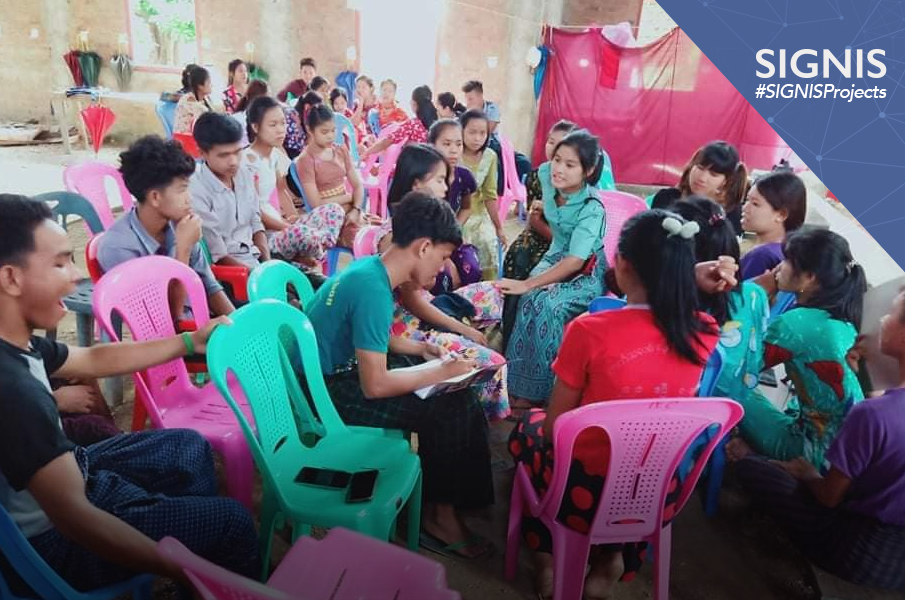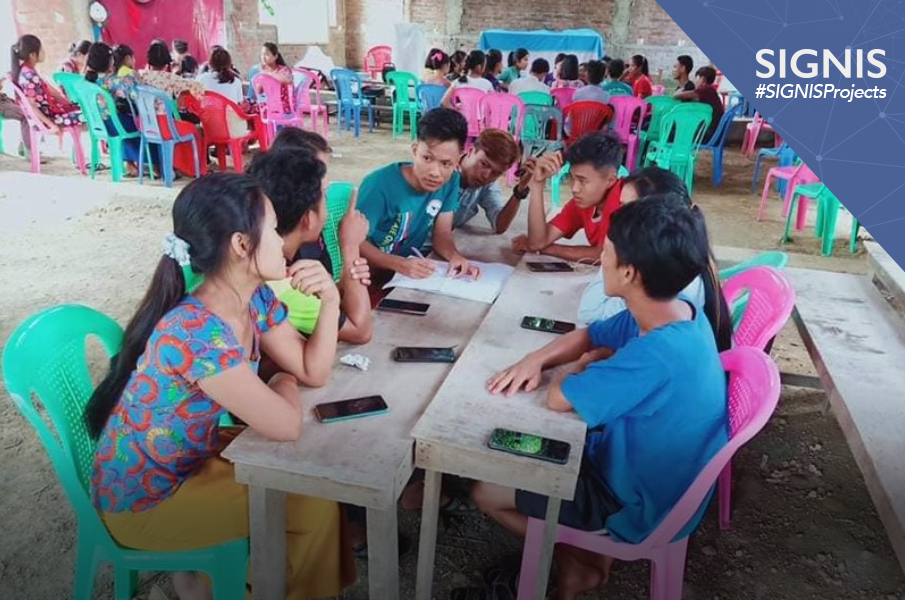Every year, SIGNIS screens project applications on media training, equipment, and production for subsidy from the Pontifical Society of the Propagation of the Faith (PSPF). In 2020, we launched the signisprojectapplication.net online portal, successfully switching from a paper-based to a fully digital application process and making it easier for applicants from all over the world to submit their projects.
Last year, we received a project request for a five-day training programme on media awareness from the Diocese of Pyay in Myanmar. In this interview, Fr. Mariano Hla Ko tells us more about how the programme will help young people understand and share the importance of mass media, media etiquette, and media ethics.
Could you tell us more about the human impact the project will have on your community?
Fr. Mariano Hla Ko: As we all know, in our country these days, human rights are neglected, media laws are disregarded, and so forth. Participants in the training programme can define and relate to the basics of all forms of media, media laws and ethics, identify varied forms of new media communication, and recognize new media as a way of life and impart it to their neighbours. The project is urgently needed to solve the current harmful situation; otherwise, the conflict would only cause further damage by using the media as a new weapon.
How do you see the situation in your community once the project is implemented?
The training programme will create useful media resources to serve the community in our diocese and region. In addition, the role, teachings and activities of the Catholic Church will be promoted. Media communication in our diocese is still behind that of the other dioceses in the country. To get the news from every parish in time, we need many journalists among our youths. Hence, we eagerly await such a course.
What can you tell us about the community where the project is taking place?
Our diocese is divided into two parts: the riverine section, which includes the parishes near the city of Pyay, and the maritime section, which consists of the Rakhine and Chin States parishes. We divided these into four zones: Riverine (Bago and Magwe regions), Thandwe (Southern Rakhaing State), Sittwe (Northern Rakhaing State), and Paletwa (Southern Chin State). In other words, the whole diocese is composed of two regions and two states that are totally different in culture, tradition, language, etc. The entire region is filled with mountain ranges, rivers and islands, and for that reason, reaching parishes in the Chin Rakhine States from our diocesan centre takes a lot of time, sometimes more than two days. We either have to go on foot from village to village and cross mountains or use a paddle boat as our main transportation to cross rivers. Our Diocese is the poorest in our country.
The project will be taking place at St. Paul’s intermediate Seminary in Pyay, for several reasons: there is a big building with enough electricity and water supply; it is close to the Bishop’s house and the diocesan centre; and lastly, transportation would be the best for the attendants.
What are your main objectives with this project?
My objectives are to proclaim the good news, witness our Holy, One and Apostolic Catholic Church, and train the youth and personnel on media subjects (such as writing, broadcasting, or multiple platforms like YouTube, Facebook, blogs, etc.). Those who are undergoing the training can become media professionals and media producers. In the past, we only offered media awareness courses. Now, I plan to provide an introductory course, and in years to come, I aim to have a well-trained media school for the youth, provided that POF and donors continue to support us.
Why do you think PSPF should continue to support these types of projects?
As a developing country and knowing the difficulties mentioned above, without POF help, we could not help our youth promote peacebuilding by using the media. As we all know, nowadays, the media is the most effective weapon both for peacebuilders and war creators. If we cannot teach our youth the ethics and importance of trustworthy media, conflicts and fake news may destroy our country, communities and human societies. Guiding our new generations not to be war creators but to be peacebuilders by using the media is, nowadays, vital.



